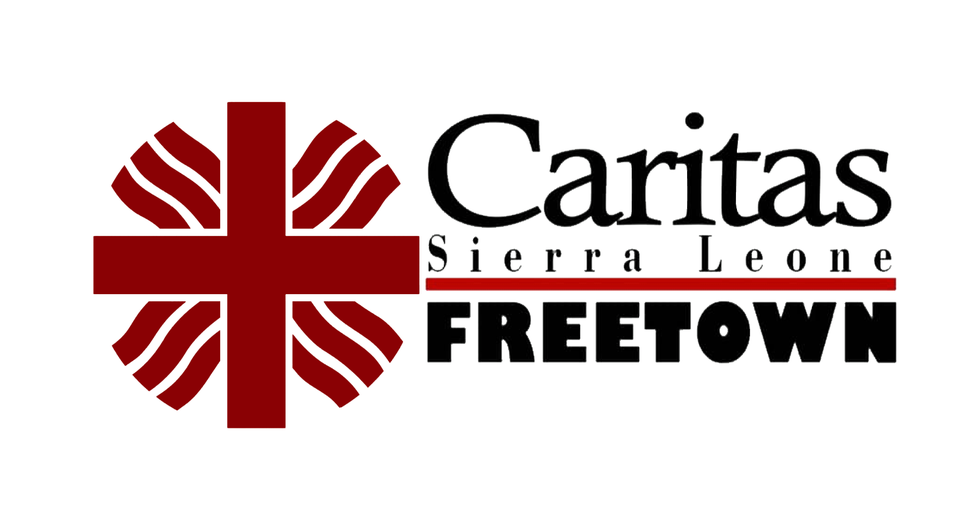About Us
Caritas Freetown: A Beacon of Hope in Sierra Leone
Caritas Freetown is the local branch of Caritas Internationalis, a global confederation of Catholic relief, development and social service organizations. Based in Freetown, Sierra Leone, Caritas Freetown embodies the spirit of Catholic social teaching by responding to the needs of the most vulnerable in the country.
Responding to Humanitarian Crises:
Caritas Freetown plays a vital role in responding to humanitarian crises, both natural and man-made. They provide immediate relief to those affected by:
Natural Disasters: Flooding, landslides, and droughts are common occurrences in Sierra Leone. Caritas Freetown provides emergency aid to those affected by these disasters, such as food, water, shelter, and medical supplies.
Conflict: Sierra Leone has a history of conflict, and Caritas Freetown works to support communities affected by violence, providing psychosocial support, peacebuilding initiatives, and reconciliation programs.
Climate Change: Climate change is exacerbating existing vulnerabilities in Sierra Leone. Caritas Freetown helps communities adapt to the effects of climate change by promoting sustainable agriculture, water management, and disaster preparedness.
Beyond Emergency Relief:
Caritas Freetown goes beyond immediate relief to address the underlying causes of poverty and vulnerability. They work to:
Rebuild Livelihoods: Caritas Freetown provides training and micro-credit programs to help people rebuild their lives and create sustainable livelihoods. This includes support for small businesses, agricultural initiatives, and vocational training.
Strengthen Communities: Caritas Freetown strengthens communities by promoting education, healthcare, and community development initiatives. They empower communities to become self-sufficient and resilient to future crises.
Our Impact:
Caritas Freetown’s work significantly impacts the lives of thousands of people in Sierra Leone. They provide a lifeline to the most vulnerable, empowering them to rebuild their lives and create a brighter future. Their commitment to serving the poor and marginalized makes them a vital force for good in Sierra Leone.
Our Mission
Caritas Freetown promotes integral human development so that people in the worst off and most disadvantaged communities are free to flourish and live in peace and dignity. We work to ensure that our natural environment is managed responsibly and sustainably in the interest of the entire human family
Our Vision
A peaceful Sierra Leone with solidarity and justice; where is no poverty access to healthy food, drinking water, medical care, education, justice, employment and decent shelter guaranteed for every citizen. A world where all human beings can live in dignity, achieve a holistic development and communities are architects of their success.
Functions
To serve as a coordinating office for the socio-pastoral mission of the Catholic Archdiocese of Freetown, networking, supporting, sharing resources, and streamlining the activities of all major actors involved in the Church’s Mission in the Archdiocese particularly parish groups, other diocesan organization, religious congregations, and other bodies active in the Archdiocese. To operate as not-for profit faith-based non-governmental organization in “building capacities and enhancing livelihoods “of the extremely poor (irrespective of religion, race, nationality, gender, and ethnicity) particularly children, youth, women, and the victims of disasters. To assist and support capacity development of Archdiocesan pastoral structures/institutions, in the fields of strategic planning/management, on-going training/formation of pastoral agents, finance and investment management; and to assist in fund-raising for the pastoral, spiritual, and evangelization programs of the Archdiocese, the various parishes, and other church institutions operating in the Archdiocese.
Scope
The organization focuses on seven strategic thematic programs, including: (a) Relief and rehabilitation; (b) Livelihoods promotion; (c) Healthcare delivery; (d) Human Rights, Justice and Peace; (e) Education; (f) Gender Empowerment; (h) Youth Empowermen
